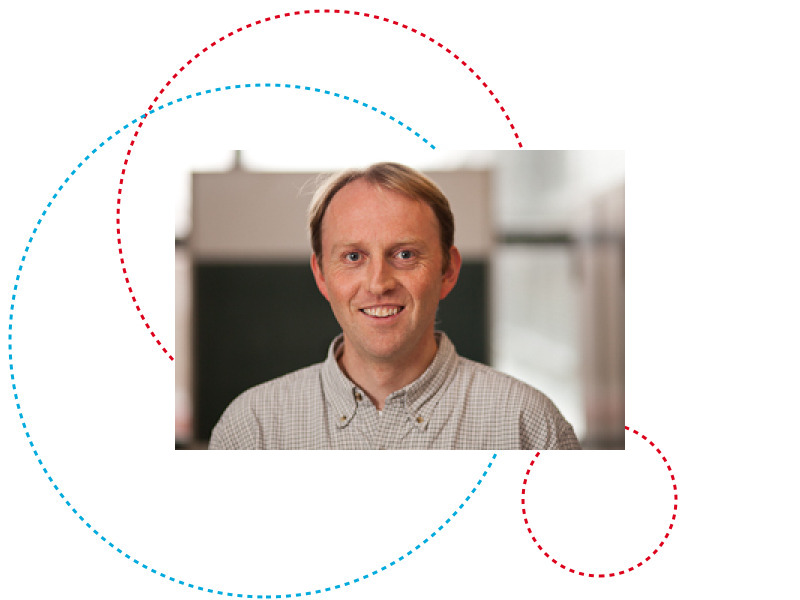Steps Towards the De-Novo Synthesis of Life
Abstract: How the immense complexity of living organisms has arisen is one of the most intriguing questions in contemporary science. We have started to explore experimentally how organization and function can emerge from complex molecular networks in aqueous solution.Figure 1 We focus on networks of molecules that can interconvert, to give mixtures that can change their composition in response to external or internal stimuli. Noncovalent interactions within molecules in such mixtures can lead to the formation of foldamers.Figure 1. In contrast, molecular recognition between molecules in such mixtures leads to their mutual stabilization, which drives the synthesis of more of the privileged structures (1). As the assembly process drives the synthesis of the very molecules that assemble, the resulting materials can be considered to be self-synthesizing. Intriguingly, in this process the assembling molecules are replicating themselves, where replication is driven by self-recognition of these molecules in the dynamic network.2,3 The selection rules that dictate which (if any) replicator will emerge from such networks are starting to become clear.4 We have also witnessed spontaneous differentiation (a process akin to speciation as it occurs in biology) in a system made from a mixture of two building blocks.5 When such systems are operated under far-from-equilibrium flow conditions, adaptation of the replicators to a changing environment can occur. Replicators that are able to catalyse reactions other than their own formation have also been obtained, representing a first step towards metabolism.6Thus, the prospect of Darwinian evolution of purely synthetic molecules is tantalizingly close and the prospect of synthesizing life de-novo is becoming increasingly realistic.7,8 9 Molecular recognition within molecules yields foldamer and between molecules drives self-replication.
[1] Li, J.; Nowak, P.; Otto, S. J. Am. Chem. Soc. 2013, 135, 25, 9222-9239. [2] Liu, B.; Pappas, C. G.; Zangrando, E.; Demitri, N.; Chmielewski, P. J.; Otto, S. J. Am. Chem. Soc. 2019, 141, 1685-1689. [3] Pappas, C. G.; Mandal, P. K. Liu, B.; Kauffmann, B.; Miao,X.; Komáromy, D.; Hoffmann, W.; Manz, C.; Chang, R.; Liu, K.; Pagel, K.; Huc, I.; Otto, S. Nature Chem. 2020, 12, 1180–1186. [4] Carnall, J. M. A.; Waudby, C. A.; Belenguer, A. M.; Stuart, M. C. A.; Peyralans, J. J.-P.; Otto, S. Science 2010, 327, 1502-1506. [5] Malakoutikhah, M.; Peyralans, J.J-P.; Colomb-Delsuc, M.; Fanlo-Virgos, H.; Stuart, M. C. A.; Otto, S. J. Am. Chem. Soc. 2013, 135, 49, 18406-18417. [6] Sadownik, J. W.; Mattia, E.; Nowak, P.; Otto, S. Nature Chem. 2016, 8, 264–269. [7] Monreal Santiago, G.; Liu, K.; Browne, W. R.; Otto, S. Nat. Chem. 2020, 12, 603-607. [8] Ottelé, J.; Hussain, A. S.; Mayer, C.; Otto, S. Nat. Catal. 2020, 3, 547-553. [9] Adamski, P.; Eleveld, M.; Sood, A,; Kun, A.; Szilágyi, A.; Czárán, T.; Szathmáry, E.; Otto, S. Nat. Rev. Chem. 2020, 4, 386–403.
About the speaker: Sijbren Otto received his M.Sc. (1994) and Ph.D. (1998) degrees cum laude from the University of Groningen in the Netherlands, where worked on physical organic chemistry in aqueous solutions in the group of Prof. Jan Engberts. In 1998 he moved to the United States for a year as a postdoctoral researcher to work with Prof. Steve Regen (Lehigh University, Bethlehem, Pennsylvania) investigating synthetic systems mediating ion transport through lipid bilayers. In 1999 he received a Marie Curie Fellowship and moved to the University of Cambridge, UK, where he worked for two years with Prof. Jeremy K. M. Sanders on dynamic combinatorial libraries. Sijbren started his independent research career in 2001 as a Royal Society University Research Fellow at the University of Cambridge in the UK. He accepted an appointment as Assistant Professor at the University of Groningen in 2009 and was promoted to Associate Professor in 2011 and Full Professor in 2016. He was elected to the Royal Netherlands Academy of Arts and Sciences (KNAW) in 2020. Sijbren was awarded ERC starting (2010) and advanced (2017) grants from the EU. He coordinated two COST actions on systems chemistry and is currently coordinator of a doctoral training network on Darwinian Chemistry.
